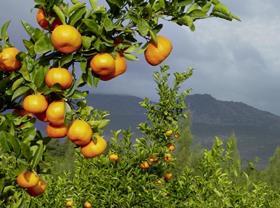
South Africa’s Western Cape Citrus Producers Forum (WCCPF) is reporting a 21-day period during which it has had no rejections for pesticides in its export programme of easy peelers, mainly late mandarins, to the US.
'During the last 21 days, the USDA has found no rejections in all the Clementines (easy peelers) shipped to the United States,' said the Forum. Before leaving South Africa, and again on arrival in the US, samples of all citrus are examined for live insects or larvae by USDA inspectors.
Unsurprised by the news, Gerrit van der Merwe, chairman of the Western Cape Citrus Producers Forum, attributed the achievement to aggressive and scientific farming practices which have been practiced for many years to reduce the risks that pests posed to the South African export programme to the US.
'We meet and exceed all USDA requirements for our fruit and our programme is a model for safety and freshness, he said.'
The successful programme, mainly in South Africa's Citrusdal region of the Western Cape, to eliminate the threat of false codling moth is a good example of efforts by growers the world over to eradicate pests. Endemic to sub-Saharan Africa, false codling moth has become resistant to customary eradication programmes.
Citrus areas along the Olifants River growers are now cooperating in an advanced scientific program called X-SIT or Sterile Insect Technique, where the false codling moths are sterilised. They are therefore unable to mate and produce offspring – as a result of this, the population of false codling moth has reduced by 95 per cent in the areas where the X-SIT programme has been introduced.
In the early part of the South African season it is more difficult to achieve a clean slate as far as false codling moth rejections are concerned. During this time, fruit from outside the X-SIT area is presented to the USDA for inspection.
'The dedicated and committed growers who are part of the X-SIT programme have seen excellent results to control these problem pests,' said Van der Merwe. 'Those who have resisted the programme find the false codling moth continues to be a problem for them and puts their fruit, as well as that of others, at risk.' He added that the programme is most effective when applied across an entire region.
During shipment, fruit also undergoes an additional cold sterilisation programme of 24 days, which according to Van der Merwe is very tough for citrus fruit. 'The internationally recognised and accepted protocols and in fact, all scientific studies, indicate that a cold sterilisation programme for no longer than 22 days is more than sufficient for the purposes of eliminating the risk of pests surviving the journey.'
The WCCPF said other countries exporting to the US prefer to use fumigation or chemical treatments of their fruit on arrival in the US. 'While that may kill pests on their fruit, it introduces chemicals to the product and reduces the freshness and shelf life in stores and in consumers' homes,' the forum said.
The USDA increased the requirements for South African citrus from 22 to 24 days in 2005 after one larva was said to have been found in a single carton. The WCCPF said the authenticity of the claim was never verified. However, since then, the US authorities have constantly frustrated efforts to re-introduce the status quo which existed before 2005.
While celebrating its success with easy peelers, the Forum did not comment on its experience with the other citrus categories which have been submitted for USDA inspections so far this season.



